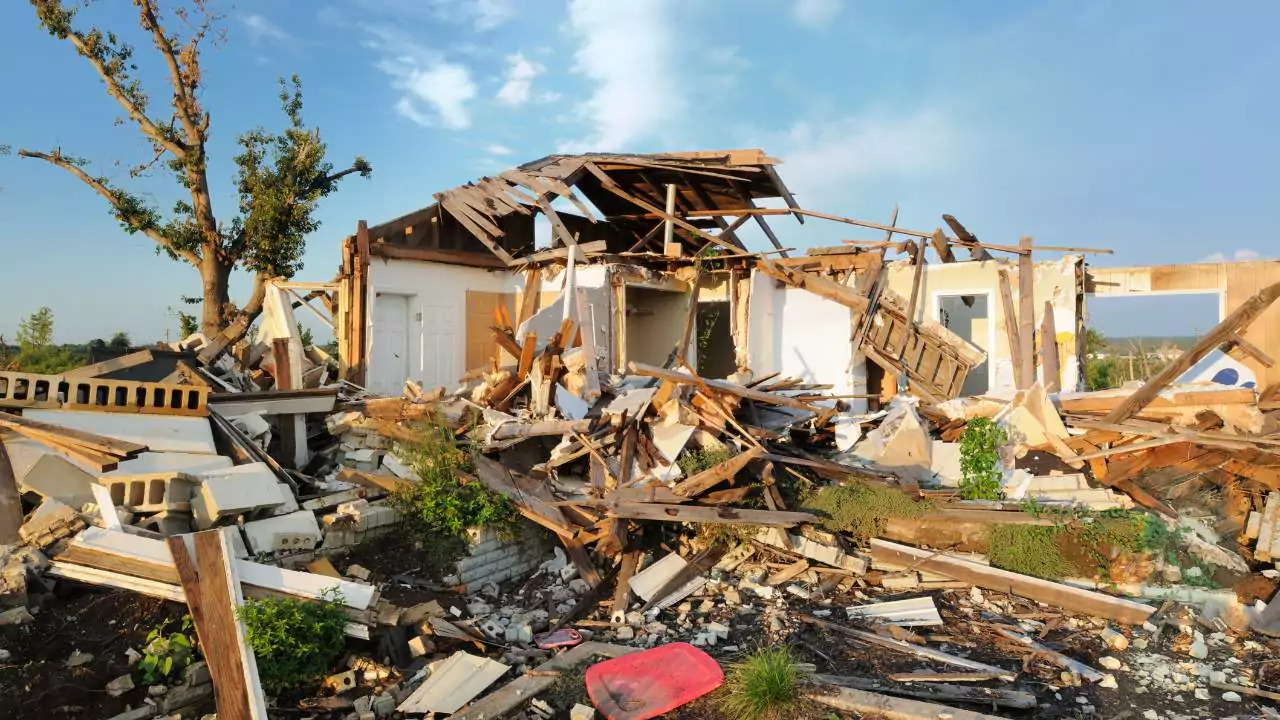Yes, generally, house insurance covers tornado damage. Most standard homeowners insurance policies include coverage for wind and hail, which are the primary causes of damage from tornadoes. However, it’s crucial to understand the specifics of your policy and potential limitations to ensure adequate coverage.
Understanding Tornado Coverage in Home Insurance
What is Covered Under a Standard Policy:
- Dwelling coverage: This protects the structure of your home, including repairs or rebuilds due to tornado damage.
- Personal property coverage: This covers belongings inside your home damaged or destroyed by a tornado.
- Additional living expenses coverage: This reimburses you for temporary housing and other living costs if your home is uninhabitable due to tornado damage.
Common Perils Covered:
- Wind: This covers damage caused by the direct force of the tornado’s wind, including roof damage, broken windows, and structural collapse.
- Hail: This covers damage caused by hailstones falling during the tornado, such as dents in siding and damage to roofing materials.
Types of Coverage Available:
- Guaranteed replacement cost coverage: This ensures your home is rebuilt to its pre-damage condition, regardless of current market value.
- Extended coverage: This can cover additional items like detached structures, swimming pools, or valuable belongings.
Tornado Damage Coverage
Property Damage:
- Dwelling coverage typically covers repairs or rebuilds to your home’s structure damaged by wind, hail, or debris from the tornado.
- Coverage for detached structures like garages or sheds may require additional coverage.
Personal Belongings:
- Personal property coverage reimburses you for damaged or destroyed belongings inside your home due to the tornado.
- The coverage limit and exclusions for specific items like jewelry or artwork should be reviewed.
Additional Living Expenses:
- Additional living expenses coverage provides reimbursement for temporary housing, meals, and other essential costs if your home is uninhabitable due to tornado damage.
- The coverage duration and daily limits should be carefully reviewed.
Special Considerations
Deductibles and Limits:
- You’ll be responsible for a deductible, a fixed amount you pay before insurance kicks in. Choose a deductible you can comfortably afford.
- Coverage limits apply to both dwelling and personal property. Ensure your limits are sufficient to cover potential tornado damage.
Coverage for Fallen Trees:
- Standard policies may cover damage caused by fallen trees directly impacting your home.
- Removing fallen trees from your property might require additional coverage.
Food Spoilage:
Power outages following tornadoes can lead to food spoilage. Coverage for this varies by insurer, so check your policy details.
Steps to Take After Tornado Damage
Filing an Insurance Claim:
- Contact your insurance company immediately after a tornado to report the damage.
- File a formal claim and provide details of the damage and estimated costs.
Documenting Damages:
- Take photos and videos of the damage to your home and belongings.
- Keep receipts for any temporary living expenses or repairs you make.
Working with Insurance Company:
- Cooperate with your insurance company’s adjuster who will assess the damage.
- Negotiate the repair or replacement costs based on your policy coverage.
Cleaning and Repairing Damage:
- Don’t make permanent repairs before your insurance company inspects the damage.
- Start cleaning and mitigating further damage while awaiting the insurance adjuster’s visit.
Additional resources for Insurance Assistance:
- National Flood Insurance Program (NFIP): Provides flood insurance in high-risk areas.
- Federal Emergency Management Agency (FEMA): Offers disaster relief assistance.
- State insurance department: Assists with insurance-related concerns.
Remember, understanding your policy details and taking prompt action after a tornado is crucial for maximizing your insurance coverage and recovering from the damage. Don’t hesitate to seek clarification from your insurance company or an insurance professional if you have any questions.





